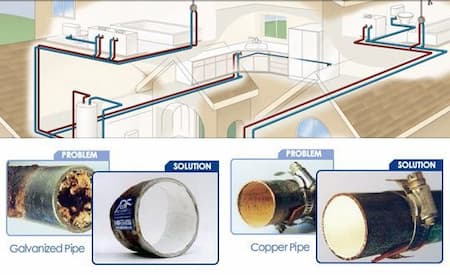The Science Behind Resin Selection in CIPP: Why Material Choice Matters

Cured-in-place pipe (CIPP) lining has become the go-to method for rehabilitating aging underground infrastructure without excavation. But what often goes unnoticed is how critical resin selection is to the success and longevity of the repair. The resin used in a CIPP liner is more than a bonding agent—it’s the chemical backbone that determines structural strength, flexibility, and resistance to corrosion or heat.
Understanding the Role of Resin in CIPP Lining
The resin is the primary component that cures into a hard, durable pipe within the host line. It forms the inner shell that resists flow pressures, groundwater intrusion, and chemical attack. Depending on environmental conditions—such as temperature, moisture, and flow content—different resin formulations are used to balance strength, flexibility, and chemical compatibility.
Selecting the wrong resin type can lead to soft spots, premature failure, or delamination, particularly in aggressive environments like industrial or chemical drainage systems. For engineers and contractors, resin choice is a science-driven decision rooted in understanding the conditions inside and around the existing pipe.
Polyester Resin: The Workhorse for General Applications
Polyester resin remains the most commonly used material in CIPP lining due to its cost efficiency and ease of handling. It performs well in municipal sewer and stormwater applications where chemical exposure is minimal. Its quick curing time makes it ideal for standard residential and commercial projects where downtime must be kept low.
However, polyester has limitations. It doesn’t tolerate high heat or strong acids and may degrade faster in industrial systems that handle chemical runoff. Despite these drawbacks, when used in the right context—such as typical sanitary sewer environments—it provides a long service life at a lower cost.
Vinyl Ester Resin: The High-Performance Option
Vinyl ester resin is a premium alternative designed for harsher conditions. It offers exceptional chemical resistance and structural stability at higher temperatures, making it ideal for industrial wastewater lines, chemical process drains, and any system where corrosive compounds are present.
This resin’s molecular structure combines the toughness of epoxy with the flexibility of polyester, creating a liner that can withstand acids, alkalis, and solvents. While vinyl ester resin can be more expensive and slightly harder to handle, the performance gains in aggressive environments make it a worthwhile investment for long-term reliability.
Epoxy Resin: The Benchmark for Durability and Bond Strength
Epoxy resin is often considered the gold standard for advanced trenchless applications. It offers the highest bond strength to host pipes and maintains excellent dimensional stability, even under constant flow or thermal stress. Epoxy-lined systems can last for decades with minimal degradation, making them ideal for high-value infrastructure and critical applications.
Epoxy is particularly effective for Greenville trenchless plumbing projects where precision and long-term structural integrity are essential. It performs well in storm and sewer systems but truly excels in industrial settings where consistent flow and variable chemical exposure are expected.
Matching Resin Type to the Environment
Choosing between polyester, vinyl ester, and epoxy depends on understanding the existing pipe’s conditions and the expected flow type. For standard sewer rehabilitation, polyester remains a reliable choice. For mixed-use or mildly corrosive systems, vinyl ester offers a balanced approach. For industrial or high-performance scenarios, epoxy delivers unmatched longevity and resistance.
Engineers must evaluate not just immediate project needs but also long-term exposure, curing temperature requirements, and environmental safety standards. A properly matched resin ensures the liner achieves full structural design life without costly rework or premature degradation.
For dependable CIPP lining solutions designed to meet the specific demands of your project, trust the experts who understand the science behind every decision. Contact Epoxy Pipe Restorations of the Southeast today for reliable, long-lasting trenchless pipe rehabilitation throughout Upstate Greenville.